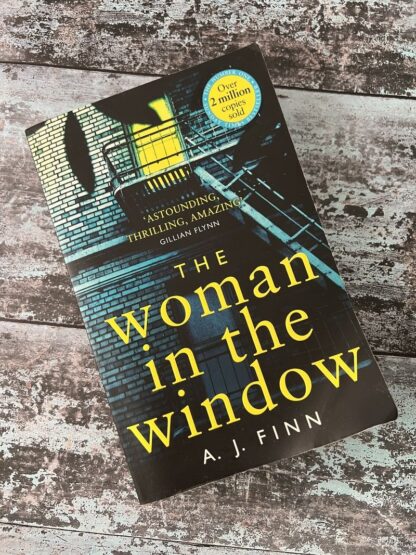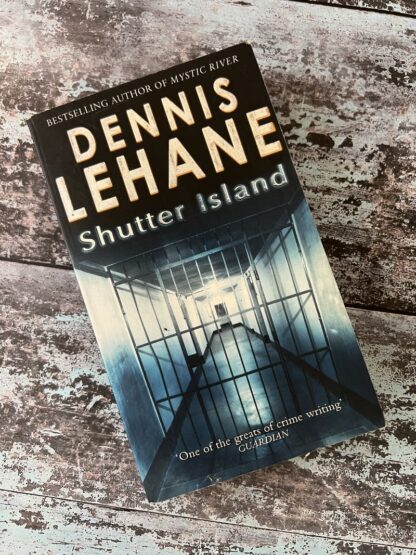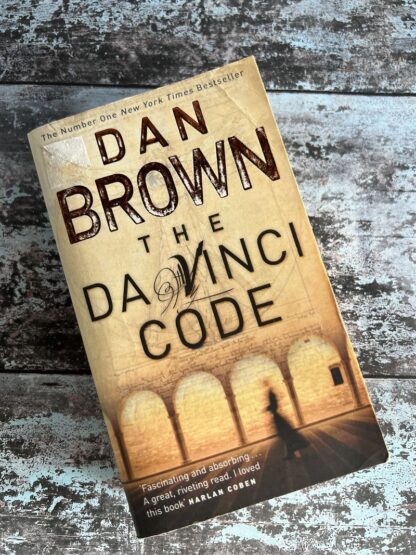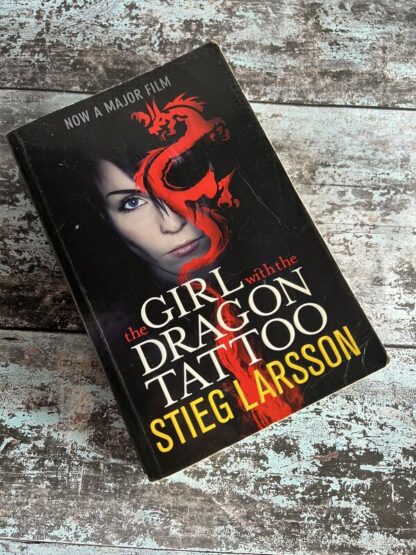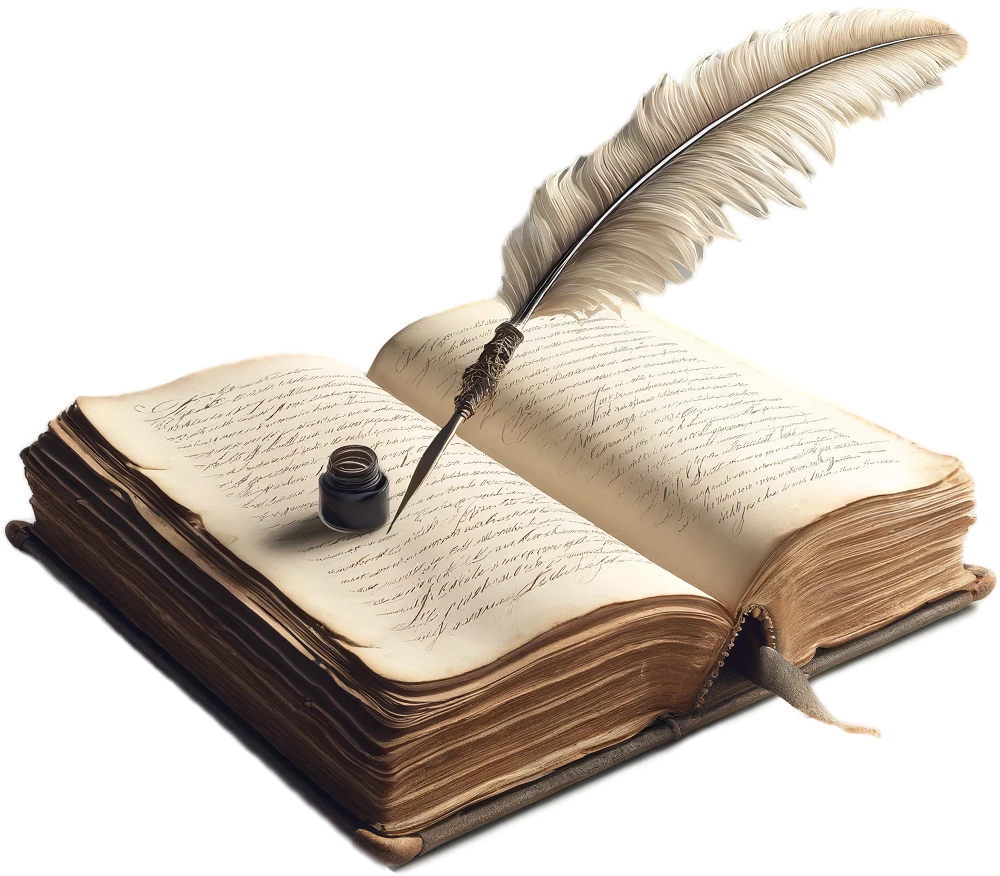
10% discount on ALL themed books
Chilling Tales: Books That Haunt and Delve into the Supernatural.
Introduction
The world of supernatural literature is a realm where reality and the unknown seamlessly intertwine, casting an eerie and captivating spell on readers. It’s a genre that has enchanted and chilled generations with its ability to explore the unexplained, the otherworldly, and the inexplicable. Supernatural literature invites us to venture beyond the ordinary, to tread the shadowy paths where ghosts, monsters, and all things eerie lurk.
At its core, the supernatural genre challenges our perceptions of reality and delves into the mysteries of the human psyche. It taps into our deepest fears and fascinations, offering a unique blend of horror, wonder, and mysticism. Whether it’s the classic tales of Gothic horror, the modern psychological thrillers, or the dark fantasies filled with creatures from the netherworld, supernatural literature has an allure that transcends time and culture. In this blog post, we’ll embark on a journey through the haunted corridors of this literary genre, exploring its defining characteristics, its evolution over the years, and a selection of chilling tales that will keep you up at night. So, if you’re ready to unlock the door to a world where the supernatural reigns supreme, join us as we peer into the abyss of chilling tales and books that haunt the imagination.
What Defines Supernatural Books
Supernatural books are a distinctive breed within the realm of literature, characterised by their ability to blur the lines between the ordinary and the extraordinary. At their core, these books introduce elements that challenge the natural order, weaving a tapestry of mystery, wonder, and sometimes terror. What defines supernatural literature is its inherent exploration of the unexplained, the paranormal, and the mystical. It invites readers to suspend their disbelief and journey into worlds where the laws of nature no longer apply.
One of the defining features of these novels is the presence of supernatural beings or phenomena. Ghosts, vampires, werewolves, witches, and other supernatural entities often take centre stage, casting an eerie and captivating spell on the narrative. These creatures serve as conduits for exploring themes of life, death, immortality, and the boundaries of existence. Whether they are malevolent spirits haunting old mansions or benevolent supernatural beings guiding protagonists through trials, these entities add depth and intrigue to the story.
Another hallmark of supernatural literature is its emphasis on the unknown and the unexplained. These books delve into the mysteries that lie just beyond the realm of human understanding. They raise questions about the afterlife, the existence of parallel dimensions, and the limits of human perception. By doing so, supernatural books encourage readers to confront the limits of their own knowledge and beliefs, making them an intellectual and emotional journey into the uncharted territories of the human experience.
Supernatural literature often incorporates elements of fear and suspense. It plays on our primal instincts and taps into our deepest fears, generating a sense of unease that keeps readers on the edge of their seats. The anticipation of encountering the supernatural, the eerie atmospheres, and the tension that builds as the narrative unfolds all contribute to the genre’s unique appeal. In essence, supernatural books are a blend of the enigmatic, the uncanny, and the terrifying, making them a captivating and enduring genre that continues to haunt and enthral readers of all ages.
The Psychology of Fear
One of the most intriguing aspects of supernatural literature is its profound ability to evoke fear and fascination simultaneously. Delving into the psychology of fear within this genre unveils a complex interplay of emotions, instincts, and intellectual curiosity. To understand why we are drawn to the spine-tingling narratives of supernatural books, it’s essential to explore the depths of our psyche.
At its core, fear is an ancient and primal response that has evolved to protect us from threats. It triggers the release of adrenaline, sharpening our senses and preparing our bodies for a fight-or-flight response. In the context of supernatural literature, this instinctual reaction is harnessed and artfully manipulated by authors. They craft narratives that tap into our deepest fears and anxieties, whether it’s the fear of the unknown, the fear of death, or the fear of the supernatural itself. By doing so, these authors create a visceral and unforgettable reading experience.
Fear is not solely a negative emotion; it can also be exhilarating. Many readers are drawn to the genre precisely because it offers a controlled and safe environment in which to confront their fears. The thrill of being scared, while knowing that they are ultimately safe, can be immensely enjoyable. It’s akin to riding a roller coaster or watching a suspenseful movie—it’s an adrenaline rush that leaves us craving more. The psychology of fear in supernatural literature provides an opportunity for readers to explore their own boundaries and test the limits of their courage.
Moreover, fear in literature often serves as a powerful metaphor for deeper, existential questions. It allows us to grapple with concepts such as mortality, the afterlife, and the mysteries of the universe. By confronting these existential fears through the lens of supernatural fiction, readers gain insights into the human condition and the nature of our existence. In this way, supernatural literature not only entertains but also challenges us to confront the profound questions that have haunted humanity for centuries.
The psychology of fear in supernatural literature is a multifaceted phenomenon. It taps into our primal instincts, provides a safe arena for thrilling experiences, and serves as a vehicle for exploring profound existential themes. It is this intricate interplay of emotions and intellectual exploration that makes supernatural literature a timeless and enduring genre, continually captivating readers with its ability to elicit fear and fascination in equal measure.
Reading for a Spine-Tingling Experience
To truly immerse yourself in the world of supernatural literature, consider these key tips. First, choose a sub-genre that aligns with your preferences, whether it’s classic horror, modern fantasy, or a unique blend of elements. Then, set the mood by dimming the lights, lighting candles, and playing eerie background music to enhance the atmosphere. Allow yourself to embrace the unknown and the unexplained as you read, letting the narrative’s mysteries captivate your imagination.
Additionally, remember to savour the suspense within the story, relishing in the tension as it gradually unfolds. Engage with fellow enthusiasts through book clubs or online forums to share your experiences and insights. Lastly, while supernatural literature can be thrilling, balance your reading with other genres to keep your literary journey diverse and enjoyable. In doing so, you can fully appreciate the spine-tingling world of supernatural books while maintaining an open mind to explore new ideas and interpretations.
Who and what to read
In the rich tapestry of horror and supernatural literature, certain authors have risen to legendary status, leaving an indelible mark on the genre. These masters of the macabre have crafted stories that continue to haunt our dreams and challenge our perceptions. Let’s take a moment to acknowledge some of the top authors who have shaped the world of horror and the supernatural:
1. Stephen King: Often referred to as the “King of Horror,” Stephen King has an unmatched ability to tap into our deepest fears and anxieties. With a vast library of works that includes “The Shining,” “It,” and “Carrie,” King’s storytelling prowess has solidified his place in literary history.
2. H.P. Lovecraft: Known for his cosmic horror and the creation of the Cthulhu Mythos, Lovecraft’s influence on the genre cannot be overstated. His stories, such as “The Call of Cthulhu” and “At the Mountains of Madness,” explore the insignificance of humanity in the face of unimaginable cosmic horrors.
3. Edgar Allan Poe: The master of Gothic horror and dark poetry, Poe’s tales of madness and the macabre, including “The Tell-Tale Heart” and “The Fall of the House of Usher,” have left an enduring legacy in the world of literature.
4. Clive Barker: With a talent for blending horror and dark fantasy, Barker has given us works like “Hellraiser” and “Books of Blood” that push the boundaries of the genre and explore the depths of human desire and the supernatural.
5. Shirley Jackson: Jackson’s haunting and psychologically driven narratives, such as “The Haunting of Hill House” and “We Have Always Lived in the Castle,” have earned her a place as one of the most influential female authors in the horror genre.
6. Anne Rice: Renowned for her “The Vampire Chronicles” series, which includes “Interview with the Vampire,” Anne Rice revitalised vampire literature by delving into the complex lives and emotions of her immortal characters.
7. Dean R. Koontz: With a knack for blending suspense, thriller, and supernatural elements, Koontz has created a diverse body of work, including “Intensity” and “Watchers,” that keeps readers hooked with its gripping narratives.
8. Mary Shelley: As the author of the iconic “Frankenstein,” Shelley’s exploration of science, morality, and the consequences of playing god laid the foundation for science fiction and Gothic horror.
These authors, among others, have shaped the horror and supernatural genres, each contributing their unique perspectives and storytelling talents. As you explore the chilling tales and supernatural wonders within the pages of their works, remember that it’s their dedication to the craft that has made them legends in the realm of the eerie and unexplained.
Conclusion
In closing, as we conclude our exploration of the captivating world of supernatural literature, we hope this journey has kindled your fascination for the mysterious, the eerie, and the unexplained. These books, with their ability to blur the lines between the ordinary and the extraordinary, have a timeless allure that continues to enchant readers across generations.
We’re excited to announce that the theme of the month at StrangeBooks, is none other than “Horror, ghosts and the Supernatural” As part of this special theme, any supernatural books purchased this month will come with an additional 10% discount. It’s the perfect opportunity to explore the haunting classics, contemporary chilling tales, and dark fantasies that we’ve discussed in this post. Whether you’re a seasoned fan of the genre or just beginning to dip your toes into the supernatural waters, StrangeBooks has an enticing selection to offer, each book promising to transport you to realms of wonder and fear.
So, if you’re ready to dive deeper into the world of supernatural literature or add to your collection of chilling tales, don’t miss this chance to enjoy both the thrill of discovery and the satisfaction of saving. Embrace the unknown, lose yourself in the eerie atmospheres, and let the mysteries of supernatural books enchant your mind. Happy reading!
Recommended Reading List
(From books currently available at StrangeBooks at the time this post was written)
- “Alfred Hitchcock’s Ghostly Gallery” by Alfred Hitchcock: Immerse yourself in a collection of chilling tales personally curated by the master of suspense himself. Hitchcock’s narrative mastery will keep you enthralled as you journey through a gallery of ghostly stories.
- “Shimmer” by Alyson Noël: Explore the supernatural with Alyson Noël’s “Shimmer,” a modern narrative that intertwines mystery and magic, offering a fresh perspective on the supernatural genre.
- “Dracula” by Bram Stoker: Return to the origins of vampire lore with Bram Stoker’s classic “Dracula.” This timeless tale of the undead remains a masterpiece of gothic horror that continues to captivate readers.
- “The Face of Death” by Cody McFadyen: Cody McFadyen’s “The Face of Death” is a heart-pounding thriller that seamlessly blends the supernatural with suspense, offering a gripping journey into the darkest corners of the human psyche.
- “The Road” by Cormac McCarthy: Step into a post-apocalyptic world of despair and survival in Cormac McCarthy’s “The Road.” This haunting narrative explores the human condition in a world devoid of hope.
- “Hater” by David Moody: Dive into a world on the brink of chaos as ordinary people turn into homicidal “Haters” in David Moody’s gripping novel. This book will keep you on the edge of your seat with its suspenseful storytelling.
- “Watchers” by Dean R. Koontz: Dean R. Koontz’s “Watchers” is a thrilling blend of science fiction and the supernatural. Join the adventure featuring an intelligent dog and a government experiment gone awry.
- “The Darkest Evening of the Year” by Dean R. Koontz: In this thrilling tale, Dean R. Koontz weaves a story of love, mystery, and the unexplainable that unfolds on a dark winter’s night.
- “Dark Secrets: The Back Door of Midnight” by Elizabeth Chandler: Elizabeth Chandler’s young adult novel explores the supernatural and hidden secrets within a small town, combining mystery with elements of the paranormal.
- “The Fog” by James Herbert: Experience the eerie and atmospheric horror of James Herbert’s “The Fog.” This supernatural thriller will envelop you in a chilling mist of suspense.
- “The Survivor” by James Herbert: James Herbert’s “The Survivor” is a haunting tale of the unexplained, offering a captivating exploration of the supernatural.
- “Bird Box” by Josh Malerman: Enter a world of terror where a mysterious presence drives people to madness in Josh Malerman’s “Bird Box.” This gripping novel is a masterclass in psychological horror.
- “X-Files: Ground Zero” by Kevin J. Anderson: Join Mulder and Scully in “X-Files: Ground Zero” as they investigate unexplained phenomena in this gripping addition to the X-Files series.
- “Frankenstein” by Mary Shelley: Return to the classic tale of “Frankenstein” by Mary Shelley, the foundational work of science fiction and horror literature.
- “Silent Treatment” by Michael Palmer: Michael Palmer’s “Silent Treatment” is a medical thriller with a supernatural twist, offering a unique blend of suspense and the unexplained.
- “The Spellgrinders Apprentice” by N. M. Browne: N. M. Browne’s fantasy novel explores the mystical world of spellcasters, providing an enchanting journey filled with magic and wonder.
- “Dr. Jekyll and Mr. Hyde with the Merry Men & Other Stories” by Robert Louis Stevenson: Robert Louis Stevenson’s timeless exploration of duality and darkness in “Dr. Jekyll and Mr. Hyde” remains a cornerstone of classic literature.
- “Bag of Bones” by Stephen King: Stephen King’s “Bag of Bones” is a supernatural thriller that delves into themes of grief, the supernatural, and the secrets hidden within a small town.
- “Insomnia” by Stephen King: Explore the intersection of insomnia and the supernatural in Stephen King’s enthralling tale, where a sleepless protagonist becomes entangled in otherworldly events.
- “The Green Mile” by Stephen King: Follow the supernatural journey of death row inmate John Coffey in Stephen King’s “The Green Mile,” a powerful exploration of compassion, justice, and the unexplained.
- “It” by Stephen King: Stephen King’s epic “It” introduces readers to the malevolent entity Pennywise the Clown and the group of friends who confront this supernatural terror over the course of their lives.
- “The Stand” by Stephen King: Stephen King’s apocalyptic epic “The Stand” takes readers on a harrowing journey through a world devastated by a supernatural plague, highlighting the enduring struggle between good and evil.
- “The Dead Zone” by Stephen King: Stephen King’s “The Dead Zone” offers a supernatural twist on the life of a man who awakens from a coma with psychic abilities, delving into themes of fate and destiny.
- “Hannibal” by Thomas Harris: Join the enigmatic Hannibal Lecter in this iconic psychological thriller that explores the depths of the human mind and the boundary between good and evil.



